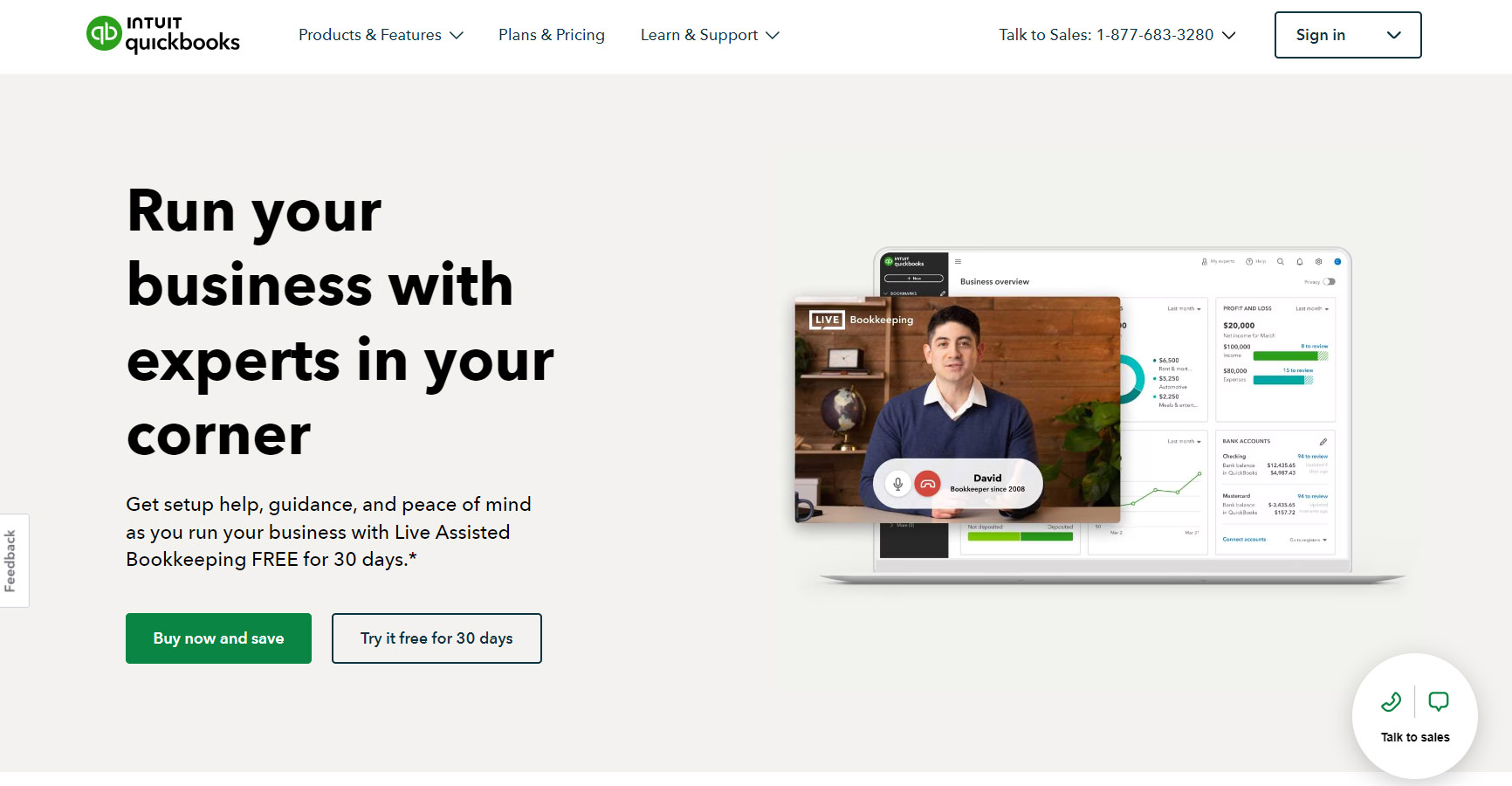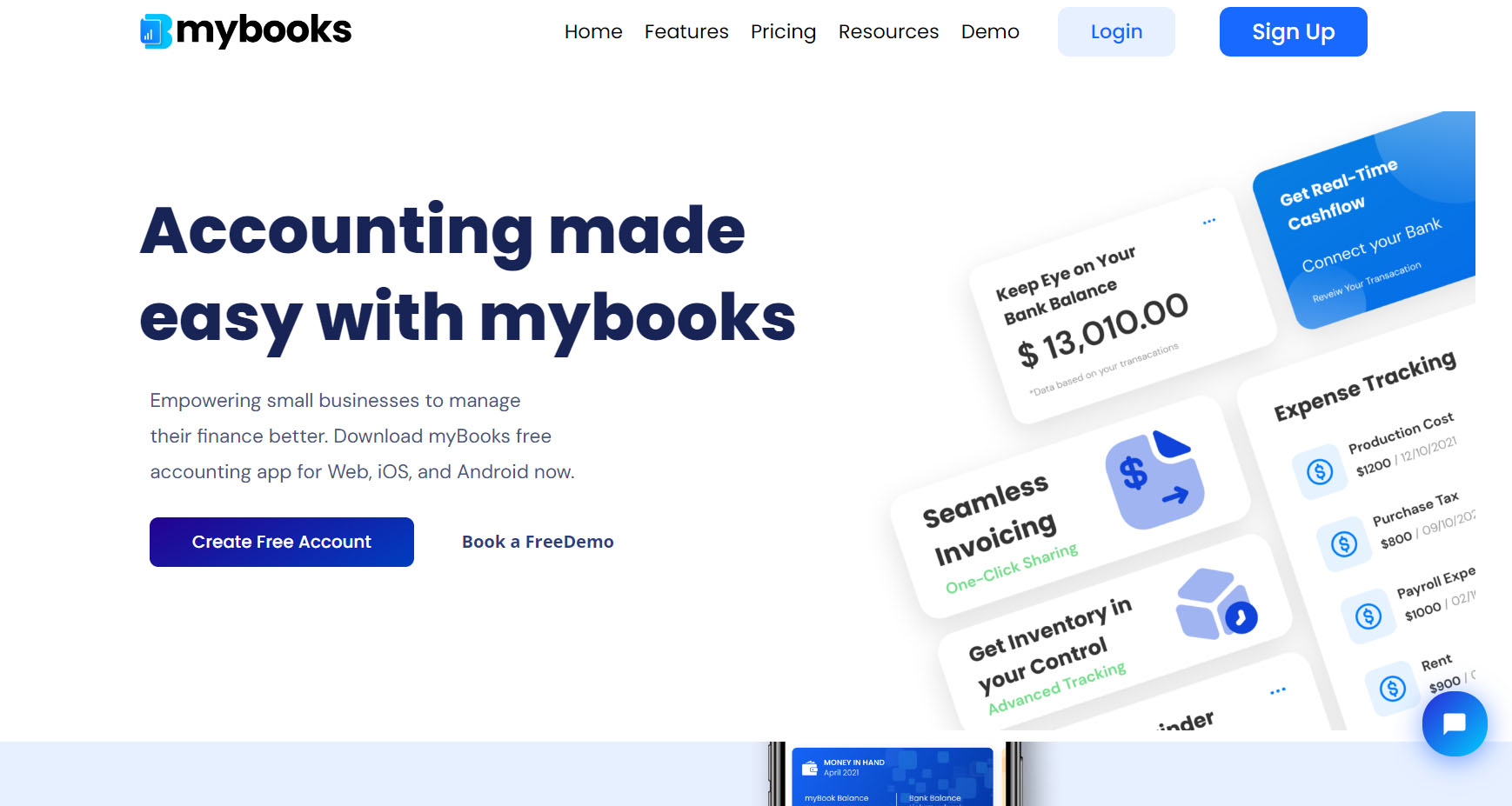Efficient billing management has its utmost importance in the hospitality industry, where easy transactions and accurate invoicing are essential for smooth operations. Find out the top billing software options, especially for hospitality businesses.
Learn about Zoho Billing’s customizable features, QuickBooks Online’s simple invoicing process, and a couple more. Each software offers unique benefits to meet the varying needs of restaurants, hotels, and event centers.
Thinking of how to manage your inventory, handle multi-currency transactions, or merge payment systems? These solutions empower you to grow in the competitive hospitality landscape.
- Zoho Billing
- TallyPrime
- QuickBooks Online
- MyBooks
Overview of the Best Billing Software for Hospitality Industry
How to Choose the Best Billing Software for Hospitality Industry
Pros & Cons of the Best Billing Software for Hospitality Industry
What to Watch Out For
Pro Tips
Recap
>>> MORE: Best Billing Software for Bars
1. Zoho Billing

Due to its straightforward billing procedures, adaptable features, and strong security measures that guarantee effective management of all your financial transactions, Zoho Billing is a top option for the hospitality sector.
Pros
- Simplifies billing procedures, making it easier for your hotel, restaurant, and event venue to handle payments and issue invoices.
- Provides pricing options and editable templates so that you can customize your invoices to fit your specific branding and clientele.
- Supports multiple currencies, making your international transactions simple.
- Protects sensitive guest information, using strong encryption and compliance measures to ensure data security.
- Increases workflow efficiency, synchronizes data and integrates with other hospitality management software.
Cons
- Requires training to fully use all of its functions and has a learning curve for staff members who are not familiar with it.
- Has few options for customizing delicate billing schemes or distinctive pricing schemes just for the hotel industry.
Standard Plan
- $20 a month for each organization
- Annually (Save up to 25%): $15 monthly for each organization
- Bill up to 100 clients at a time.
- Produce thorough reports.
- Adjust to local tax laws and language
- Establish a portal for customer self-service.
- Make credit notes & retainers.
- Create invoices and quotes.
- Make use of editable templates
- Assist up to three users at once.
- Take care of projects and timesheets, and accept payments online.
Professional Plan
- $50 every month for each organization
- Annually (Save up to 25%): $39 monthly for each organization
- Send bills to as many as 500 clients.
- Contains every item found in the Standard Plan.
- Oversee subscription billing, make use of hosted payment pages, and offer alternatives for multiple currencies.
Premium Plan
- $100 every month for each organization
- Annually (Save up to 25%): $79 monthly for each organization
- Send bills to up to 1000 clients.
- comprises all of the Professional Plan’s contents.
- Bill clients according to usage, oversee trial accounts and remind clients about abandoned carts
Elite Plan
- $300 every month for each organization
- Annually (Save up to 25%): $239 monthly for each organization
- Send bills to up to 3000 clients.
- Contains every item in the Premium Plan.
- Provide Single Sign On to the customer portal, automate revenue recognition, and develop sophisticated approval processes.
2. TallyPrime

Select TallyPrime for smooth billing in the hospitality industry. Manage your invoices easily, quickly share invoices via WhatsApp, and alter your billing formats.
Pros
- Makes it possible to quickly create, print, and email professional invoices.
- Allows you to customize purchase and sales management to fit the specific cycles of your company.
- Accepts a variety of billing formats for goods and services.
- Supports multiple currencies and automatically calculates gain/loss in Forex.
- Makes it easier to manage various price lists for various clientele groups.
- Permits organizations and parties to maintain multiple addresses.
Cons
- Features a learning curve for anyone who is not familiar with the software.
- Needs more staff training to fully utilize its features.
- Lacks certain advanced reporting functionalities
- Quick invoice creation and to your specifications.
- Adaptable sales and purchase management.
- Support for various formats for billing
- Using WhatsApp for order sharing and billing.
- Support for multiple currencies and automated Forex computations.
- Management of multiple price levels.
- Keeping several addresses up to date for organizations and events.
- Management of accounts payable and receivable automatically.
- Use default details to reduce the amount of duplicate data entry.
- Support for promotional programs and transactions that are overdue.
3. QuickBooks Online

QuickBooks Online is essential for the hospitality industry because it simplifies your invoicing, ensuring prompt payments and an improvement in your cash flow. It offers customizable invoices to reflect your brand and converts estimates into invoices easily. With automatic reminders and recurring invoices, it saves time and keeps finances organized.
Also, it calculates taxes, discounts, and shipping costs accurately. Accessible from anywhere, it lets you send invoices via WhatsApp, catering to modern customer communication preferences.
Pros
- Simplifies the invoicing procedure to ensure timely payments.
- Offers invoices that you can customize to match your brand.
- Converts estimates into invoices seamlessly.
- Provides recurring invoices and automates reminders.
- Computes taxes, discounts, and shipping expenses with accuracy.
- Allows for device accessibility and allows for WhatsApp invoicing.
Cons
- Requires some training for first-time users who are not familiar with accounting software.
- Is expensive for companies with limited resources.
- Requires internet access to function fully, which is problematic in some settings.
- Has the potential to create data silos due to its limited integration with other hospitality management systems.
Simple Start: $1 per month (annual billing, 50% off throughout the year) or $18 per month (monthly billing)
- Monitor your earnings and costs.
- Provide customized quotes and invoices.
- Link your financial institution.
- Monitor your VAT and GST.
- Reports and insights
- Record and arrange receipts
- Progress billing
- For one person as well as your accountant
Essentials: $1/month (annual billing, 50% off all year) or $27/month (monthly billing).
- Includes all features of Simple Start
- Organize and pay bills
- Monitor staff time
- Multiple currencies
- For three users, as well as your accountant
Plus: $1/month (annual billing, 50% off year-round) or $38/month (monthly billing)
- incorporates all of Essentials’ features
- Invoices and regular transactions
- Monitor stock levels
- Monitor project financial performance.
- Control spending
- Five users in addition to your accountant
>>> PRO TIPS: Best Billing Software For Distributors
4. MyBooks

MyBooks is one of the best billing software for the hospitality sector because it makes invoicing simple, keeps track of inventory effectively, integrates with payment processors easily, and offers real-time financial insights that help your company grow.
Pros
- Simplifies difficult billing procedures
- Manages inventory effectively, preventing stockouts
- Combines smoothly with various payment methods
- Provides thorough financial reports to help with decision-making
- Offers intuitive user interfaces for simple navigation
Cons
- Lacks advanced features specific to the hospitality industry, like table management or reservation systems
- Has limitations in customization for unique business needs
- Requires additional training for staff unfamiliar with accounting software
- Experiences occasional bugs or technical issues
Basic Plan:
- Free
- Suitable for small hospitality businesses
- 1 user only, 25 transactions every month, simple inventory management
Standard Plan:
- $4.99 per month
- Ideal for mid-sized hospitality businesses
- Includes 3 users, payment integration, 100 transactions
Premium Plan:
- $9.99 per month
- For growing hospitality businesses
- Offers 1 division, 10 users, endless transactions, automatic bank feed, SMS integration,
Enterprise Plan:
- Contact for pricing
- For large hospitality enterprises
- Multiple division support, limitless users & transactions, profitability analysis, priority support, automatic bank feed, and SMS integration.
Android & iOS apps are available
Overview of the Best Billing Software for Hospitality Industry

Zoho Invoice, TallyPrime, QuickBooks Online, and MyBooks offer diverse billing solutions for the hospitality sector. Zoho excels in seamless invoicing and security, while TallyPrime focuses on easy invoice management and customization. QuickBooks Online streamlines invoicing with customizable features, though lacks hospitality-specific functions.
MyBooks simplifies billing and inventory tracking, yet hardly meets advanced industry needs. Each software varies in pricing, features, and suitability, catering to businesses of different sizes and requirements in the dynamic hospitality landscape.
>>> GET STARTED: Best Accounting Software for Ecommerce
How to Choose the Best Billing Software for Hospitality Industry
To choose the Best Billing Software For Hospitality Industry, follow these steps:
- Identify your specific needs: Consider your business size, the volume of transactions, and any unique requirements, such as multi-currency support or integration with other systems.
- Research available options: Explore billing software tailored for the hospitality industry, comparing features, pricing plans, and user reviews to narrow down your choices.
- Assess customization and scalability: Look for software that offers customizable templates and pricing options to align with your branding and accommodate growth.
- Evaluate ease of use and training requirements: Prioritize user-friendly interfaces and assess the potential learning curve for staff, considering the availability of training resources or customer support.
- Consider integration capabilities: Choose software that seamlessly integrates with other hospitality management systems you use, ensuring efficient workflow and data synchronization.
- Review security measures: Prioritize software with robust encryption and compliance measures to safeguard sensitive guest information and financial transactions.
- Calculate cost-effectiveness: Evaluate pricing plans based on your budget and projected ROI, considering factors such as subscription fees, transaction limits, and scalability options.
Pros & Cons of the Best Billing Software for Hospitality Industry
Pros
- Streamline billing operations for hotels, restaurants, and event venues.
- Offer customizable templates and pricing options.
- Provide multi-currency support for global transactions.
- Ensure data security with robust encryption and compliance measures.
- Integrate seamlessly with other hospitality management software.
- Enable quick creation, printing, and emailing of professional invoices.
- Offer flexible purchase and sales management tailored to business cycles.
- Support multiple billing formats and multi-currency transactions.
- Facilitate easy management of multiple price lists and addresses.
- Streamline invoicing processes for prompt payments.
- Provide customizable invoices and automated reminders.
- Convert estimates into invoices seamlessly.
- Accurately calculate taxes, discounts, and shipping costs.
- Offer accessibility from any device, enabling modern communication.
- Streamline invoicing and inventory tracking efficiently.
- Integrate seamlessly with payment systems.
- Provide real-time financial insights for informed decision-making.
- Offer user-friendly interfaces for easy navigation.
Cons
- Have a learning curve for staff unfamiliar with the platform.
- Lack of some industry-specific features.
- Have limited customization options for complex billing structures.
- Lack certain advanced reporting functionalities.
- Have a learning curve for new users unfamiliar with accounting software.
- Are costly for businesses with tight budgets.
- Require internet connectivity for full functionality, limiting usage in certain environments.
- Have limitations in customization for unique business needs.
- Require additional training for staff unfamiliar with accounting software.
- Experience occasional bugs or technical issues.
What to Watch Out For

- Potential learning curves, requiring staff training to maximize functionalities.
- Possibility of lacking industry-specific features, such as table management or reservation systems.
- Limitations in customization options for unique business needs.
- Occasional bugs or technical issues that may affect smooth operation.
- Additional costs for high-tier plans or advanced features that go beyond basic billing needs.
Pro Tips
- Assess your business needs and size to choose a plan that fits your requirements and budget.
- Consider the learning curve and potential training needs for your staff to maximize the software’s functionalities.
- Evaluate the software’s compatibility with your existing systems and its ability to integrate seamlessly with other hospitality management software you use.
- Look for customizable features that allow you to tailor invoices to your branding and clientele.
- Check for industry-specific features such as table management or reservation systems, depending on your business requirements.
- Ensure the software offers robust security measures to safeguard sensitive guest information.
- Consider the scalability of the software to accommodate your business’s growth over time.
- Look for multi-currency support if you cater to international guests and need to facilitate global transactions effortlessly.
- Prioritize software that provides real-time financial insights and detailed reports for informed decision-making.
- Opt for software that streamlines billing operations, facilitating smooth invoicing and payment handling for hotels, restaurants, and event venues.
Recap
Zoho Invoice shines with its customizable features and robust security, while TallyPrime offers seamless invoice management and multi-currency support. QuickBooks Online stands out for its invoicing streamlining and accessibility.
MyBooks streamlines invoicing and inventory tracking but lacks certain advanced hospitality-specific features. Each option offers various pricing plans unique to your business needs, ensuring efficient financial management.













